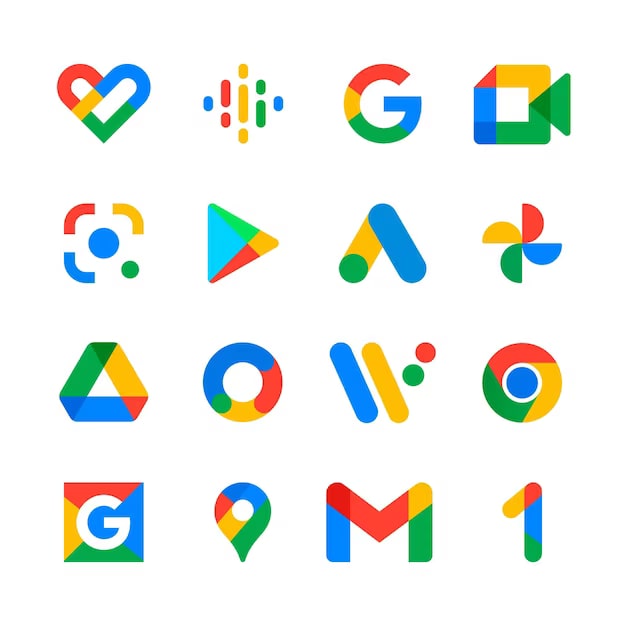Over the years, Google’s search engine results pages (SERPs) have witnessed significant disruptions due to algorithm updates. From the well-known Penguin, Panda, Caffeine, to May Day updates, these changes have reshaped the search landscape. Google’s approach usually starts with addressing specific issues and gradually evolves into broader algorithmic transformations, often acquiring names before being fully integrated into the core ranking system. Amid the dynamic nature of the search, one constant remain: Google’s dedication to combat spammy web content. In this ever-changing search environment, understanding Google’s evolving search psyche becomes essential, especially as artificial intelligence (AI) continues to revolutionize search and our daily lives.

Google Search Generative Experience vs. Knowledge Panel
The comparison between Google’s Search Generative Experience (SGE) and Knowledge Panel offers valuable insights into how the search community responds to major updates.
Google’s Search Generative Experience (SGE)
Recently, Google introduced the Search Generative Experience (SGE) preview, which sparked concern among SEOs. The preview suggested limited space for organic search links, leading to fears that traditional SEO practices might become obsolete. Speculations arose that SEO and paid search would no longer rely on clickable elements.
Google’s AI product, Bard, is closely associated with SGE, and certain updates confirmed that Bard rarely lists citations and links to content creators. This led to concerns that Google might reduce traffic to websites with fewer organic link placements and citations.
However, it’s improbable that Google’s entire revenue model, based on pay-per-click advertising, would undergo drastic changes overnight. The adoption of such technologies on a global scale will take time. The transition might involve more reliance on AI recommendations for crafting ads, shifting away from the conventional focus on keywords and links. While search will undergo significant changes, it will continue to exist in a transformed manner.
Knowledge Panel: Past and Present
In 2012, Google launched the Knowledge Panel, relying on the Knowledge Graph system to provide specific information directly in search results instead of linking to external webpages. Despite concerns from SEOs, the Knowledge Panel did not mark the end of search or organic traffic. Instead, it expanded the search real estate for information-rich queries, reducing the need for clicks as users found the necessary information within the panel itself.
Fast forward to today, and knowledge panels have evolved even further, serving a wide range of formats and delivering information directly to users, minimizing the need for additional clicks. Despite initial pessimism, search remains as vital as ever, and Google continues to drive traffic to websites.
Google’s Emphasis on Helpful Content: Panda and the Helpful Content Update
Drawing parallels between Google’s recent “Helpful Content” system and the earlier Panda updates reveals a consistent theme in Google’s approach to improving search quality.
Google’s “Helpful Content” Update
In August 2022, Google introduced the “Helpful Content” update, aiming to reward content that provides a satisfying user experience. To succeed with this update, Google advised content creators to focus on users, not just search engines. Creating content that meets users’ needs, demonstrates expertise, and offers value is essential for success. Avoiding content created solely for search engines is crucial, as it often results in unsatisfying experiences for searchers.
The Legacy of Panda Updates
Google’s Panda updates, dating back to 2011, also emphasized rewarding high-quality, original content while penalizing low-quality, duplicate, or spammy content. The goal was to offer users the most relevant and valuable results, fostering a healthy web ecosystem.
The rhetoric around the “Helpful Content” update echoes the principles of Panda updates. The focus on user-centric content remains consistent, and Google aims to maintain a useful search engine that keeps users engaged and satisfied. As Google embraces AI, this approach is likely to continue, and creating helpful content for users will remain a crucial aspect of SEO.
Examining Common Threads Between the Past and Present
When disruptive technologies like AI emerge, some pessimists predict the end of search and the death of SEO. However, a careful examination of past and present Google updates reveals a more optimistic perspective.
History has shown that widespread adoption of new technologies takes time, and AI is no exception. Instead of panicking, understanding Google’s long-term vision for search and aligning our strategies accordingly is crucial. While AI may introduce changes, it is not the doomsday meteor ending our careers. SEO will continue to evolve, just as it did with information retrieval (IR) before.
AI-driven search will still require human-produced content to learn from and improve the web ecosystem. The integration of AI into search is an opportunity for growth and progress, and businesses must adapt and embrace this new frontier. Rather than fearing change, SEO professionals should strategically plan and navigate the disruptions, paving the way for a promising future.
As Google’s search algorithm evolves with the advent of AI, the core principles of providing helpful and user-centric content remain unchanged. Past updates like Panda and the recent “Helpful Content” system reveal a consistent emphasis on rewarding valuable content and prioritizing user experience. Likewise, previous transformations like the Knowledge Panel demonstrate that search will persist despite technological advancements.
AI presents opportunities for SEO professionals to innovate and optimize their strategies. Instead of fearing disruption, embracing change and aligning with Google’s vision will ensure long-term success. The future of SEO lies in creating content that meets users’ needs, utilizes AI-driven insights, and adapts to the evolving search landscape.
In conclusion, as we journey into the AI-driven era, let us view it as an opportunity to excel, thrive, and shape the future of SEO, making search an ever more powerful and beneficial tool for users and businesses alike.
Sharing is Caring!
